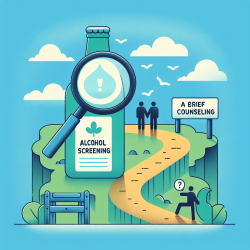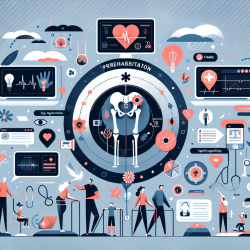Introduction
In the rapidly evolving field of genomics, the discovery of disease-associated genes is crucial for advancing medical research and improving patient care. A recent study titled "Diagnostic testing laboratories are valuable partners for disease gene discovery: 5-year experience with GeneMatcher" highlights the pivotal role that clinical laboratories play in this process. This blog post aims to help practitioners enhance their skills by implementing the outcomes of this research or encouraging further exploration in the field.
The Role of Clinical Laboratories in Gene Discovery
Clinical laboratories are instrumental in the discovery of new disease genes, particularly through the use of diagnostic exome sequencing (DES). The study emphasizes the importance of data sharing platforms like GeneMatcher, which facilitate collaboration between researchers and clinicians by connecting genomic and phenotypic data.
Since 2016, the laboratory featured in the study submitted 246 candidates from 243 unique genes to GeneMatcher. Remarkably, 45% of these candidates are now clinically characterized, showcasing the effectiveness of selective sharing and collaboration in gene discovery.
Implementing Research Outcomes in Practice
Practitioners can improve their diagnostic capabilities by incorporating the following strategies based on the study's findings:
- Utilize Data Sharing Platforms: Engage with platforms like GeneMatcher to share and access data on candidate genes. This can significantly enhance the diagnostic yield and facilitate the discovery of new therapeutic targets.
- Adopt a Systematic Approach: Implement a scoring system for evaluating gene-disease validity (GDV) to prioritize high-confidence, potentially disease-causing variants. This approach ensures that only the most promising candidates are pursued, reducing unnecessary workload.
- Collaborate with Clinical Laboratories: Establish partnerships with clinical laboratories to access large cohorts of testing data. These collaborations can expedite the identification of relevant phenotypes and streamline the reclassification process.
Encouraging Further Research
While the study provides valuable insights, there is still much to learn in the field of disease gene discovery. Practitioners are encouraged to pursue further research in the following areas:
- Explore Complex Inheritance Patterns: Investigate genes with lower penetrance or complex inheritance patterns, which may require extensive data-sharing initiatives and collaborations.
- Expand into New Clinical Settings: Utilize DES in new clinical settings to discover disease genes associated with additional phenotypes, including severe disorders typically lethal in the prenatal setting.
- Participate in Cohort Studies: Engage in large cohort studies to gather robust clinical data and phenotypic information, which are crucial for characterizing gene-disease associations.
Conclusion
The study underscores the invaluable role of clinical laboratories in disease gene discovery efforts. By leveraging data sharing platforms, adopting systematic approaches, and fostering collaborations, practitioners can significantly enhance their diagnostic capabilities and contribute to the advancement of medical research.
To read the original research paper, please follow this link: Diagnostic testing laboratories are valuable partners for disease gene discovery: 5-year experience with GeneMatcher.










